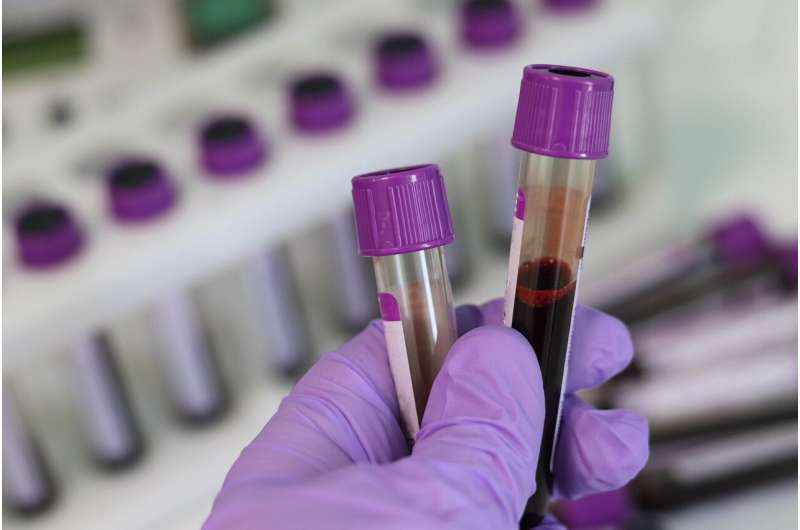This article has been reviewed according to Science X's editorial process and policies. Editors have highlighted the following attributes while ensuring the content's credibility:
fact-checked
peer-reviewed publication
trusted source
proofread
Large-scale study of nine genes in 4,580 patients with chronic lymphocytic leukemia

Next-generation sequencing studies have in recent years revealed numerous recurrently mutated genes in chronic lymphocytic leukemia (CLL). These mutations are usually found in a relatively small percentage of cases and associated with poor clinical outcome.
Recent evidence also suggests that the prognostic impact of gene mutations in CLL patients may differ depending on the immunoglobulin heavy variable (IGHV) gene somatic hypermutation (SHM) status. Given the relatively low frequency of mutations in CLL-related genes, large-scale studies are necessary to investigate the frequency of these mutations as well as their impact on prognosis, particularly in the context of IGHV SHM status.
In a new study published in Leukemia, researchers from Karolinska Institutet investigated the prognostic role of nine recurrently mutated genes in CLL (BIRC3, EGR2, MYD88, NFKBIE, NOTCH1, POT1, SF3B1, TP53, and XPO1) and their relative impact in IGHV-mutated (M-CLL) and unmutated CLL (U-CLL). The analysis was performed on pre-treatment samples collected from a cohort of 4580 CLL patients from 26 European centers, the largest series to date, and coordinated by the European Research Initiative on CLL (ERIC) as partner of the HARMONY Alliance.
The study revealed that mutations were found in 35% of patients at frequencies ranging from 2–10% for each gene with mutations in NOTCH1 being the most frequent event. Except for MYD88, mutations in all genes were associated with significantly worse outcome. Importantly, the authors discovered different sets of genetic mutations predicting clinical outcome in U-CLL and M-CLL, with SF3B1 and XPO1 mutations as the only independent prognostic markers in both groups.
"Our findings highlight the need for a multistep approach to identify high-risk patients, particularly among M-CLL cases, with implications for stratified management," says Larry Mansouri, Associate Professor at the Department of Molecular Medicine and Surgery.
More information: Larry Mansouri et al, Different prognostic impact of recurrent gene mutations in chronic lymphocytic leukemia depending on IGHV gene somatic hypermutation status: a study by ERIC in HARMONY, Leukemia (2022). DOI: 10.1038/s41375-022-01802-y



















